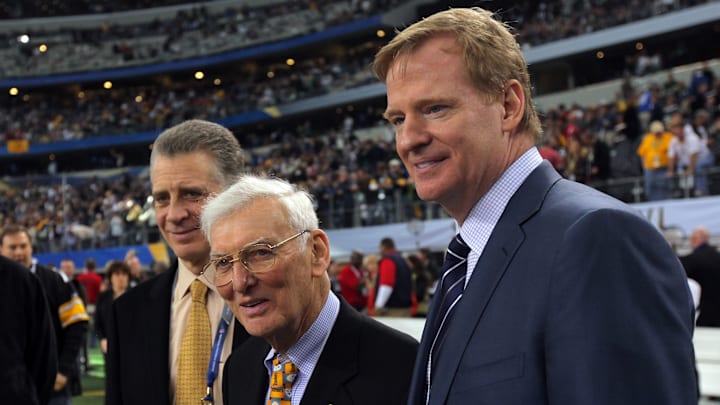As the 2023 NFL regular season comes to an end, postseason teams will slowly begin to dwindle down each week. As teams clean out their lockers after disappointing campaigns, they will be left with many questions — most of which will begin with coaching.
The NFL is a production-based business, and in a league that has just 32 available head coaching positions, there is little patience for error. Few head coaches should feel safe with their job security in a league where even Bill Belichick, who resurrected a franchise and transformed it into a perennial champion, gets fired.
Every January, the NFL coaching carousel begins to heat up. As teams look to fill vacancies, there are often few established candidates available, and they usually get scooped up quickly. The remaining franchises fill the opening with young up-and-coming assistant coaches.
As franchises hire their new head coaches, the NFL's controversial hiring practices often take center stage. The most notable of all is the Rooney Rule.
What is the Rooney Rule?
In 2003, the NFL implemented the Rooney Rule based on recommendations made by the league's Workplace Diversity Committee. The rule was named after Dan Rooney, the late owner of the Pittsburgh Steelers and chairman of the committee. The Rooney Rule attempted to address concerns about the historically low number of minorities in head coaching positions.
Those concerns had risen in the years leading up to the Rooney Rule after minority head coaches Tony Dungy and Dennis Green were fired. Dungy, who had a 54-42 record over six seasons with the Tampa Bay Buccaneers, was fired prior to the 2002 season. That season, the Buccaneers won their first Super Bowl championship with the stellar defensive unit that Dungy had developed. Green, meanwhile, had made the postseason in eight of his nine seasons with the Minnesota Vikings, but he was fired during the 2001 season due to a 5-10 start.
The rule has gone through several changes over the years. Originally, the policy required every team with a head coaching vacancy to interview at least one minority candidate before making a hire. In 2009, the rule was extended to include general manager and other front office vacancies, requiring teams to interview a minimum of two minority candidates.
Here's what the Rooney Rule requires now:
1. The NFL requires every team to interview at least two external minority candidates for open head coaching positions and at least one external minority candidate for a coordinator job. Additionally, at least one minority and/or female candidate must be interviewed for senior-level positions such as team president and senior executive.
2. As of 2020, if a team develops a minority talent that goes on to become a general manager or head coach with another NFL team, the team receives a third-round compensatory pick for two years. If a team loses both a coach and personnel member, it receives a third-round compensatory pick for three years.
3. As of 2022, NFL teams are required to conduct outside interviews with a minority and/or female candidate for vacant quarterback coach positions. With most prospective coaches beginning their careers as quarterback coaches, the amendment is expected to help increase the pool of qualified minority coaches in the future.
The Rooney Rule initially produced promising results, as the percentage of minority head coaches in the NFL rose from 6 percent to 22 percent within three seasons.
After some time, some of the rule’s flaws began to emerge. While minority candidates were being interviewed, they weren’t necessarily being hired. Between 2019 and 2023, only seven of 27 head coaching vacancies were filled by minority coaches: Ron Rivera, David Culley, Robert Saleh, Mike McDaniel, Lovie Smith, Todd Bowles, and DeMeco Ryans.
In 2022, former Miami Dolphins head coach Brian Flores filed a lawsuit against the NFL, alleging that the Dolphins, the Denver Broncos and the New York Giants only interviewed him to fulfill the Rooney Rule and never took him seriously as a candidate.
While things are improving, the NFL still has a long way to go.
